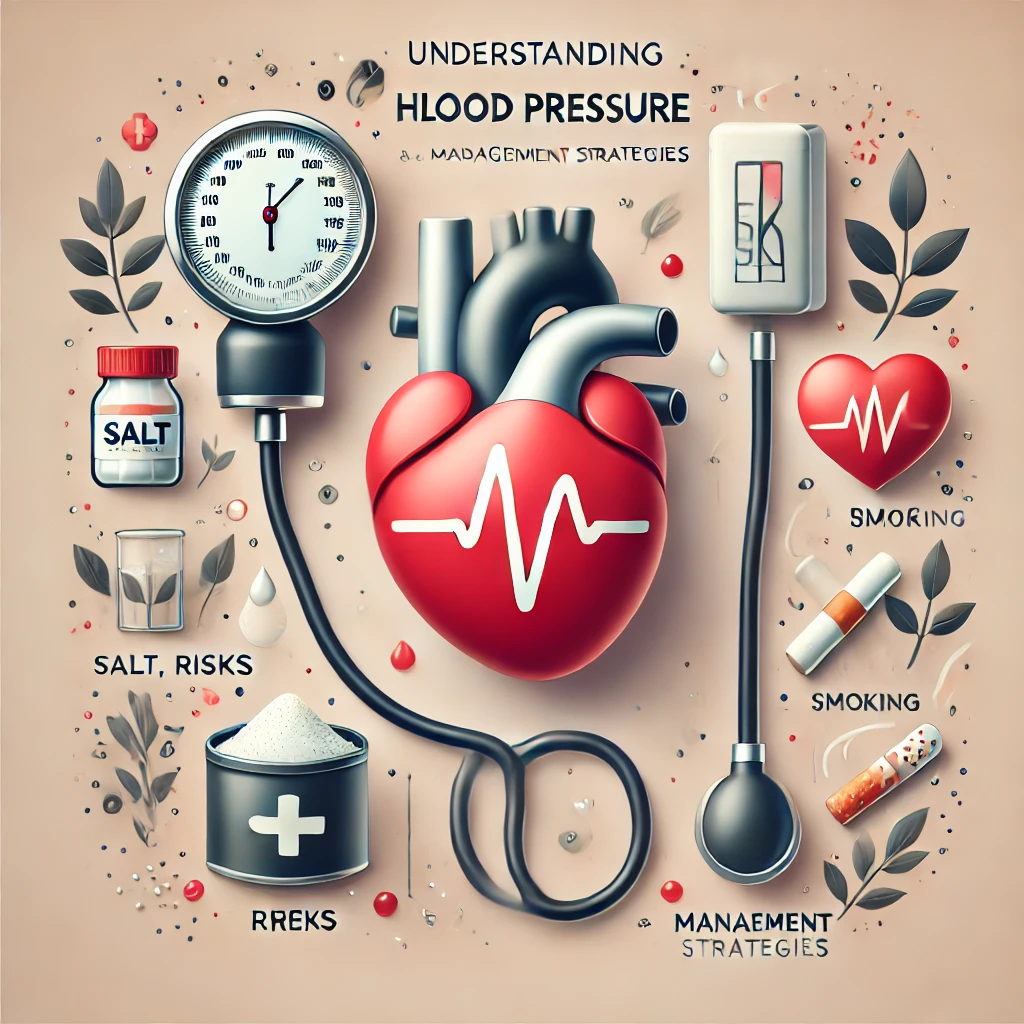Understanding High Blood Pressure: Causes, Risks, and Management Strategies
High blood pressure, also known as hypertension, is a prevalent health concern affecting millions of people worldwide. Despite its commonality, many remain unaware of its implications and how it can be effectively managed. This comprehensive guide aims to shed light on the causes, risks, and strategies for managing high blood pressure, ensuring that you stay informed and proactive about your health.
The Basics: What is High Blood Pressure?
Blood pressure is the force of your blood pushing against the walls of your arteries. When this pressure consistently exceeds normal levels, it results in what is known as high blood pressure or hypertension. It is often referred to as a “silent killer” because it can cause significant damage to the body without manifesting any noticeable symptoms.
Understanding Blood Pressure Readings
- Systolic Pressure: The higher number in a blood pressure reading, it indicates the pressure in the arteries when the heart beats.
- Diastolic Pressure: The lower number, representing the pressure in the arteries when the heart rests between beats.
Normal blood pressure is usually around 120/80 mmHg. Hypertension is diagnosed when levels consistently remain above normal.
Causes of High Blood Pressure
The exact cause of high blood pressure often remains elusive, but several factors may contribute to its development:
- Genetics: A family history of hypertension can increase the likelihood of developing high blood pressure.
- Age: The risk of hypertension increases as we age.
- Poor Diet: High sodium intake from processed foods can lead to increased blood pressure levels.
- Lack of Physical Activity: Inactivity can contribute to weight gain and increased blood pressure.
- Obesity: Excessive weight increases the demand on the heart, raising blood pressure.
- Excessive Alcohol Consumption: Drinking too much alcohol can raise blood pressure levels.
- Smoking: Tobacco use can damage blood vessel walls, leading to increased pressure.
- Stress: Chronic stress may contribute to temporary increases in blood pressure.
Risks Associated with High Blood Pressure
Uncontrolled high blood pressure poses serious risks to your health and can lead to several complications:
- Heart Disease: Hypertension is a significant risk factor for heart attacks and heart failure.
- Stroke: High blood pressure can weaken or damage blood vessels in the brain, increasing the risk of a stroke.
- Kidney Damage: Hypertension can cause blood vessel damage in the kidneys, leading to kidney disease.
- Vision Loss: Damage to the blood vessels in the eyes can result in vision problems or blindness.
- Memory Issues: High blood pressure can affect cognitive abilities and memory.
Management Strategies for High Blood Pressure
While high blood pressure is a serious condition, it can be managed effectively through lifestyle changes and, in some cases, medication. Here are some strategies to help control your blood pressure:
Adopt a Healthy Diet
- Follow the DASH diet, which emphasizes fruits, vegetables, whole grains, and lean proteins while minimizing salt and processed foods.
- Limit sodium intake to less than 2,300 mg per day, if possible, aiming for 1,500 mg.
Maintain a Healthy Weight
- Losing even a small amount of weight can significantly lower your blood pressure.
- Work towards maintaining a BMI within the healthy range, as advised by your healthcare provider.
Exercise Regularly
- Aim for at least 150 minutes of moderate aerobic activity, such as brisk walking or cycling, each week.
- Incorporate strength training exercises at least two days a week.
Limit Alcohol and Tobacco Use
- If you choose to drink alcohol, do so in moderation.
- Quit smoking to improve overall cardiovascular health.
Manage Stress
- Practice relaxation techniques such as meditation, yoga, or deep breathing exercises.
- Ensure you get adequate sleep each night to help manage stress levels.
Medication
In some cases, lifestyle changes might not be enough, and medication may be necessary. Always consult with your healthcare provider to determine the most appropriate treatment plan tailored to your needs.
Conclusion
Understanding high blood pressure is crucial for managing this common yet potentially dangerous condition. By being aware of the causes, risks, and management strategies, you are better equipped to take charge of your health. Remember, consistent monitoring and proactive lifestyle choices can make a significant difference, ensuring longer and healthier life.



